Is it a good idea to publish during your PhD? Yes, but ...
Published in Social Sciences

I recently finished my PhD in Economics with an empirical focus at a German university (TU Dortmund University) and I was not required to publish a paper in a journal to obtain my PhD. Even if I was not required to, publishing papers during my PhD was a great experience that I would not want to miss. It offers the opportunity to improve your writing skills, to engage with the academic community by communicating your research and yields many more advantages. Although there are benefits, it also comes along with shortcomings as for example time consuming revisions which slow down the progress of other papers. However, these shortcomings are often waived away when you see the final paper appearing in a journal. Moreover, publications are probably a good signal with respect to scientific career advancement when competition for scientific positions is harsh. Read below how I experienced the publication process during my PhD.
Submitting the first draft of a paper might be a bit stressful as several decisions have to be made before. Besides finding a ‘relevant’ topic and question you have to decide when you start the writing process (e.g. after collecting data and estimations). Not only the starting point, but also the decision when the manuscript is ready to be submitted is rather difficult to make. Both, the stage when determining the topic of your paper and the start-stop decision are points in the process when insights from experienced colleagues and advisors are worth a mint to make the correct decisions. When the paper is finally submitted, it appears to be half the job. This is when a large ‘but’ comes in place: On the one hand this might be the case for your dissertation as you likely have a chapter (to some extent) ready. For the publication process on the other hand it is just the start of a (potential) series of revisions which might lead to a journal publication. From the description up to this point it is possible to derive first advantages of attempting to publish a paper even if you do not have to: You have overcome two critical hurdles when writing a chapter for your dissertation: Starting to write a paper and stopping to edit the actual draft of this paper (for a time). Thus, you make progress with respect to your dissertation. I found this to be one of the greatest advantages of this stage of the process.
Having submitted your paper, it appears that there are possibly two outcomes which are observed most likely: Rejection or having the opportunity to revise your paper. Assuming the submission process went well and you get the opportunity to revise your paper, you learn that the submission might have been just the top of the iceberg. In my opinion, this is the stage of the whole process which offers the greatest advantages but also the largest shortcomings. You get comments from reviewers which are experts on the specific area. These comments comprise a lot of complementary knowledge to comments from advisors, colleagues or for example seminar participants. In that respect I learned a lot about precision of writing, framing of arguments and putting my work in perspective to existing literature. Additionally, you might learn a lot of technical stuff as the reviewer might suggest different methods, additional tests or demands other channels to show the robustness of your results. All these additional comments are likely improving your current paper to a great extent, but they are also helpful to write better drafts of future papers. Even in case of a rejection, applying the comments to your paper might improve the paper and make it more likely to get not rejected from the next journal (especially if you meet the same reviewer twice).
Although following the suggestions of reviewers likely improves your paper substantially, revisions are time consuming. This is especially the case if you never made a revision of a paper to this extent before. Thus, you have to keep in mind that this is one chapter of your dissertation and that you might need a few more to obtain your PhD. This makes it necessary to re-organize your work such that you are able to do a revision and also work on a new paper at the same time. Doing so turns this shortcoming of the process into an advantage for you as you can improve your work process for future papers. In my opinion, this is an important benefit as you gain additional experiences in mastering projects parallel. Here again, it is advantageous to talk to experienced colleagues and your advisor(s) to survive the revision process.
After revisions are completed and acceptable for all parties involved (e.g. editor, reviewers), your paper likely gets accepted by the journal. Congratulation! To see the polished paper appearing in the journal, finally the production stage must be mastered. This is what I would call the eagle eye stage. In this, final corrections are made such that you and the journal are satisfied with the appearance of the article. When your article appears finally online and in print you can announce the publication via social media such as twitter. You can be proud the work of the last months (or even years). Promoting your work is a great opportunity to get in touch with other researchers and people which are interested in your findings.
To sum it up, publishing is fun, teaches you a lot, let you gain complementary knowledge but is work intensive, time consuming and from time to time frustrating. However, in my opinion the advantages prevail. Besides the listed advantages, this is not least rooted in the fact that publications are likely serving as a strong and important signal for scientific career advancement. Especially in times when the amount of PhD students and competition for scientific jobs seems to increase.
Follow the Topic
-
Nature

A weekly international journal publishing the finest peer-reviewed research in all fields of science and technology on the basis of its originality, importance, interdisciplinary interest, timeliness, accessibility, elegance and surprising conclusions.
-
Nature Human Behaviour

Drawing from a broad spectrum of social, biological, health, and physical science disciplines, this journal publishes research of outstanding significance into any aspect of individual or collective human behaviour.
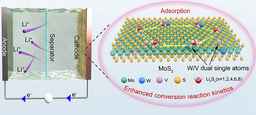
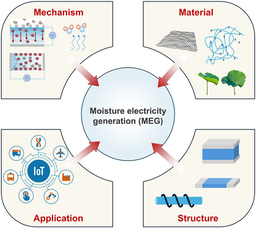
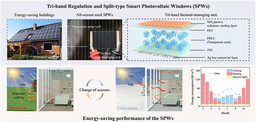
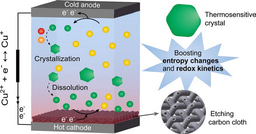
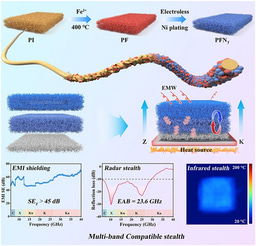
Please sign in or register for FREE
If you are a registered user on Research Communities by Springer Nature, please sign in